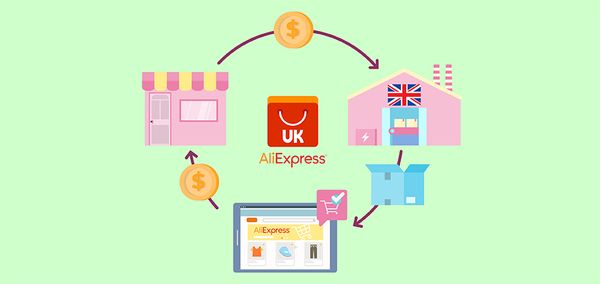Complete Guide of the 10 Types of Entrepreneurs 2022

Entrepreneurs are people who opt for the decision to create a new business and face all the risks smartly to grab most of the rewards. The completed process of setting up a business is popularly known as entrepreneurship. The entrepreneur is frequently viewed as an innovator, a source of fresh concepts for products, services, companies, and operational methods.
Each person approaches business differently and uses various strategies to create it. Well, here we will discover the top 10 types of entrepreneurs.
Top 10 Types of Entrepreneurs
People have various views, objectives, desires, and aspirations for the sort of business they wish to establish. Hard labour is a success factor for some, while having adequate cash results in a successful enterprise is for others. Some companies prioritise social benefits over other considerations. The following post will explain in detail the ten sorts of entrepreneurs.
1. Trading Entrepreneurs
A trade entrepreneur is someone who buys things from others and then sells them straight to clients. It acts as a middleman because it does not manufacture anything and does not have its own factory. Trading entrepreneurs buy furnished things from companies and sell them to customers visiting their shops. This type of business is also known as a dealer, retailer, intermediary, or wholesaler between traders and manufacturers.
2. Manufacturing Entrepreneurs
The person who prepares or manufactures items using raw materials is often known as a manufacturing entrepreneur. These kinds of entrepreneurs begin by evaluating the market or occasionally ensure to study prior reports. This way, they get a straight idea about the items that are in high demand in the market. Then, whatever they find to be the most asked item, they begin acquiring raw materials to prepare it in their factories.
| Get Started Now to Grow Your Online Business with the Best AliExpress Dropshipping Tool - DSers! |
It is apparent that it requires more hands to get a perfectly manufactured item; therefore, entrepreneurs recruit people that are crucial for an undisturbed workflow. Then, workers assemble desired things from essential components and sell them to wholesalers. As a result, manufacturers do not have direct relations with their clients.
3. Small Business Entrepreneur
When a person runs a tiny business with the help of a few workers in their company/shop, he is better known as a small business entrepreneur. These entrepreneurs may not necessarily be able to afford big dreams like owning a spacious house, luxury cars, and an elite lifestyle.
However, they work hard to earn their bread and butter so they would be able to meet the basic expenses such as children's education and provide them with a modest lifestyle. A few examples of small businesses are clothing stores, shoe stores, hairdressers, small grocery stores, and others who work on a modest scale.
4. Large Business Entrepreneurs
A large firm entrepreneur is a person who works on a significantly high level and earns a substantial profit. Such firms have a set of laws and regulations for recruiting employees; hence, they conduct complex interviews to ensure they are qualified for the position before employing anyone. The hired professionals continue to increase the company's income by introducing new and inventive products and concepts. In addition, such businesses develop exceptional plans and execute cutting-edge marketing.
Large business entrepreneurs are incredibly ambitious and do not work in a single cycle. Instead, they set lofty goals and strive tirelessly to accomplish them. Any small firm with an ambitious entrepreneur has the potential to grow into a major corporation. For instance, Microsoft and Amazon started off at a small level but are now operating on a massive scale.
5. Social Entrepreneur
A social entrepreneur is someone who establishes a business intending to improve the lives of others rather than making a profit.
The amount of money required to establish these businesses is determined by the sort of social service you will deliver to the community. For example, if you want to teach street children, only a low investment would be required. Contrary, if you want to build a shelter house for homeless children so that you can provide better food and education, it will cost you a lot.
In such firms, the proprietor receives no financial rewards, but many institutes provide tremendous cash and funding as the organisation's name increases. This way, it will become relatively easier for the social entrepreneur to manage things appropriately.
6. Innovative Entrepreneur
People who focus on bringing new things to the market without expecting to get paid in return are known as Innovative Entrepreneurs. They are always passionate about improving the lifestyle of humans rather than earning profit out of their effort in most cases.
Innovative Entrepreneurs share ideas with their teammates and ask for suggestions to make them more effective. Also, they ensure the best way to use the technology better without draining out the natural resources.
7. Hustler Entrepreneur
As the name itself denotes Hustler entrepreneurs are those who start their business with less capital but stay devoted to converting it into a large company. They work day in and day out to pursue their dreams of owning a reputable, well-known business.
Their commitment towards work lets people know about their passion, bravery, and hardworking personality. Such entrepreneurs do not believe in blaming others for any loss; instead, they concentrate on fixing it and always face difficult situations wisely.
Their innovative and complex work helps them to achieve their business goals so that they can become prominent business entrepreneurs.
8. Imitator Entrepreneur
An imitator entrepreneur takes other people's ideas as vital and seeks to improve them. Such individuals are bright because they learn from the mistakes of others and operate their businesses well without trying to reinvent the wheel. So, if you want to be halfway between hustler and innovator, be an imitator, this way, you won't have to devote too much time to come up with fresh ideas. Furthermore, there is essentially little risk of loss in such firms.
9. Buyer Entrepreneur
The person who buys an existing or pre-established business can be referred to as Buyer Entrepreneur. It requires a whopping amount to purchase an already established firm or company. However, once you legally own the charge of a company, you will get the authority to modify the work culture or implement new techniques to improve the ineffective parts of the firm, or even resell it.
These businesses can become risky because you have bought a successfully running and reputable company, and need to ensure that it keeps running well. It may require a lot of hard work. Furthermore, if you lack leadership qualities, you may have to face adverse outcomes and failure soon. Being a Buyer entrepreneur requires a lot of trust in yourself.
10. Researcher Entrepreneur
A researcher entrepreneur conducts extensive study before investing money in any business. Such individuals are not rash, but they work with meticulous preparation and spend a significant amount of time researching the product they intend to introduce and ensuring that they can potentially gain a considerable profit from it.
Similarly, they have sessions and investigate everything about business owners, doing their best to learn all of the characteristics of a successful businessman. So you now know what the ten sorts of entrepreneurs are.
Characteristics of Entrepreneurship
Great Entrepreneurs come from all backgrounds. There is no one personality type, and it's crucial to focus on the entrepreneurial team rather than the individual, according to the statement in Entrepreneurship Essentials. And while that is true, some traits and abilities are crucial for entrepreneurs to possess while creating and running a business.
Here are ten traits that great businesspeople have in common.
Innovation & Creativity
Entrepreneurship is about coming up with fresh and inventive ideas and putting them into action in order to make profits. For example, service innovation might entail developing technology that lowers costs while increasing productivity.
Risk-taking Capacity
The ability to accept risk is a necessary feature of entrepreneurship. Risk happens when a novel concept is implemented as failure is a possibility. Entrepreneurs take calculated risks because they appreciate the difficulties of putting a novel concept into action, but need to be prepared for everything.
Profit-making
With the exception of social entrepreneurship, all other forms of entrepreneurship exist solely to make a profit. It is the incentive given to entrepreneurs to take a chance on a fresh concept.
Entrepreneurship is a type of economic activity that entails business formation, management, and operation. Furthermore, it creates jobs and guarantees that resources are used efficiently to maximise profit.
Last Words
A person is classified as an entrepreneur depending on the strategy he takes to do business. For example, an inventive entrepreneur is someone who thinks about new business concepts. All sorts of business people are effective and have distinct characteristics. Thus, by knowing the ten categories of entrepreneurs, you can analyse your talents and decide what type of business to start.













 Company
Company
 Why Choose DSers
Why Choose DSers
 Blog
Blog
 Help Center
Help Center




 Live Chat
Live Chat